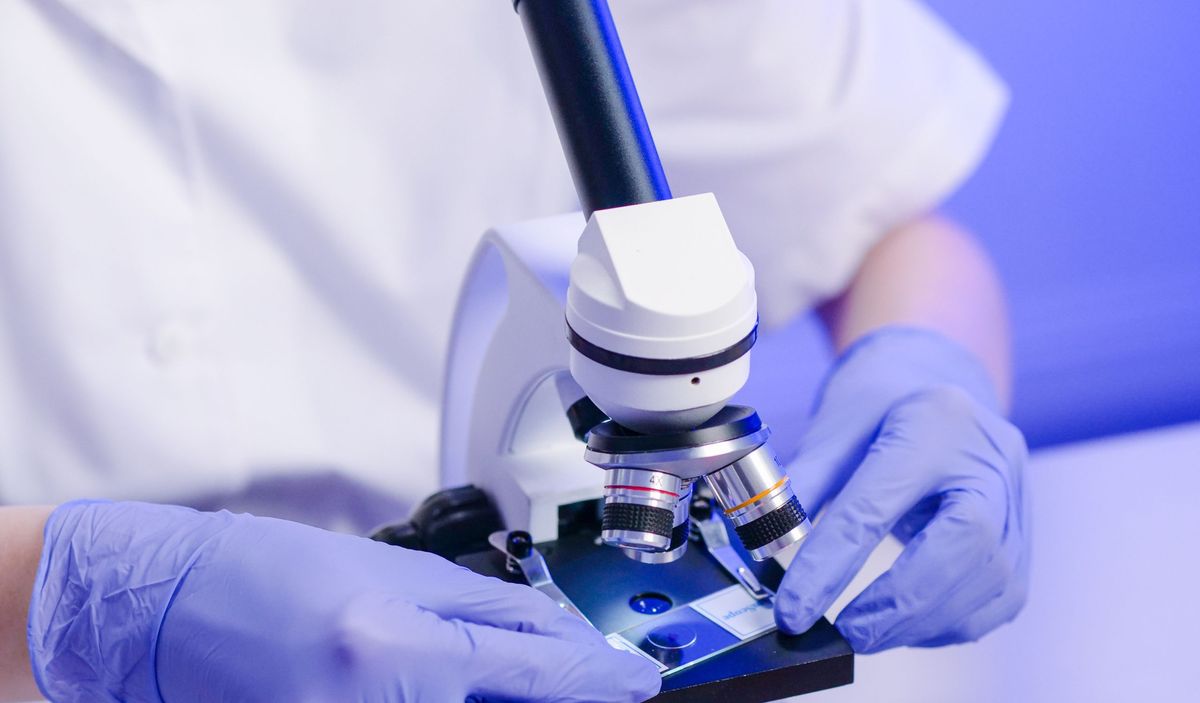What is Biochemistry?
At its heart, biochemistry is the captivating study of the intricate chemical processes that occur within living organisms. It delves into the molecular level, exploring the building blocks of life and how they interact to sustain and propel various biological functions. Imagine it as a grand symphony of molecules, each playing a unique role in the intricate dance of life. Biochemistry bridges the gap between biology and chemistry, unraveling the mysteries that underlie the functioning of all living things.
Methods in Biochemistry
Biochemistry employs a wide array of methods and techniques to scrutinize the molecular mechanisms that orchestrate life's phenomena. These methods include:
- Spectroscopy: By analyzing how molecules interact with light, spectroscopy helps scientists decipher the structure and behavior of biomolecules.
- Chromatography: This technique aids in separating complex mixtures of molecules, allowing researchers to isolate and study specific components.
- Electrophoresis: Through the use of an electric field, electrophoresis separates molecules based on their size and charge, aiding in the study of DNA, proteins, and other macromolecules.
- X-ray Crystallography: By bombarding crystallized molecules with X-rays, scientists can deduce their 3D structures, providing crucial insights into their functions.
- Enzyme Assays: These experiments measure the activities of enzymes, which are vital for catalyzing biochemical reactions.
- Molecular Modeling: Advanced computational methods simulate molecular interactions, enabling scientists to predict and analyze biochemical processes.
What Does a Biochemist Do?
Biochemists are scientific explorers who venture into the microscopic realm to uncover the secrets of life. They wear various hats, such as:
- Research: Biochemists engage in groundbreaking research to elucidate the intricacies of cellular processes, often focusing on topics like genetic expression, enzyme kinetics, and signal transduction pathways.
- Drug Development: These experts play a crucial role in designing and testing new drugs, ensuring their safety and efficacy in treating diseases.
- Diagnosis: Biochemists contribute to medical diagnostics by developing and improving techniques to detect biomarkers and analyze blood, urine, and other bodily fluids.
- Biotechnology: Biochemists are key players in the field of biotechnology, harnessing cellular machinery for applications such as genetically modified organisms (GMOs), enzyme production, and biofuel development.
- Teaching and Communication: Many biochemists share their knowledge by teaching at educational institutions or communicating scientific discoveries to the public through writing and media.
The Importance of Biochemistry in Medicine
Biochemistry's role in medicine is nothing short of transformative. It serves as a cornerstone in the understanding and treatment of diseases:
- Drug Discovery: Biochemical research drives the discovery of new drugs and therapies, offering solutions for conditions ranging from infections to cancer.
- Genetic Diseases: By unraveling the molecular basis of genetic disorders, biochemists aid in the development of gene therapies and personalized medicine.
- Molecular Diagnostics: Biochemical techniques enable precise and rapid diagnostics, facilitating early disease detection and targeted treatment.
- Vaccines: The study of immune responses at the molecular level guides the development of vaccines, safeguarding global health.
- Understanding Metabolism: Insights into metabolic pathways have implications for obesity, diabetes, and metabolic syndromes, leading to innovative interventions.
Biochemistry in Everyday Life
While biochemistry often conjures images of laboratories and research, its influence extends far beyond those confines, enriching our daily experiences:
- Nutrition: Understanding biochemistry helps us make informed dietary choices, knowing how nutrients are processed and utilized in our bodies.
- Cooking: Biochemical reactions are at play in the kitchen, from caramelization and Maillard browning to fermentation in baking and brewing.
- Cosmetics and Skincare: Knowledge of biochemistry guides the formulation of products that enhance skin and hair health.
- Cleaning Agents: Enzymes, which are proteins studied in biochemistry, serve as potent ingredients in laundry detergents and stain removers.
- Environmental Impact: Biochemical insights contribute to sustainable practices, such as bioremediation to clean up pollutants and the development of biofuels.
Reasons to Study Biochemistry
1. Decoding the Molecular Basis of Life
At the heart of biochemistry lies the quest to decipher the fundamental building blocks of life. By studying the intricate interactions of molecules, such as proteins, nucleic acids, and lipids, you gain insights into the essence of living systems. Learn how enzymes catalyze reactions, how DNA encodes genetic information, and how cellular processes sustain life itself. This foundational knowledge not only answers age-old questions about life's origins but also forms the basis for innovations in fields like medicine and biotechnology.
2. Bridging Biology and Chemistry
Biochemistry serves as a bridge between two scientific giants: biology and chemistry. For those with a love for both disciplines, it offers the perfect synergy. Explore how chemical principles govern biological processes, and witness the beauty of these worlds converging. Whether you're fascinated by cell signaling pathways or intrigued by the behavior of biomolecules, biochemistry provides a holistic perspective that deepens your understanding of both realms.
3. Unraveling Diseases at the Molecular Level
Many diseases originate from molecular irregularities within the body. Studying biochemistry equips you with the tools to uncover these underlying causes, leading to breakthroughs in disease diagnosis, treatment, and prevention. Understand how mutations in genes can lead to conditions like cancer, and explore how pharmaceuticals target specific molecules to restore health. As a biochemist, you contribute to the ongoing battle against diseases that affect millions.
4. Pioneering Advances in Biotechnology
The biotechnology revolution owes much to biochemistry. From genetically modified organisms (GMOs) that enhance crop yields to the production of life-saving drugs through recombinant DNA technology, biochemistry has fueled remarkable innovations. Dive into the world of genetic engineering, enzyme manipulation, and synthetic biology, where you have the power to reshape industries and contribute to a more sustainable future.
5. Satisfying Curiosity through Research
Biochemistry is a playground for the curious. Engage in hands-on research that unveils the mysteries of life's mechanisms. From exploring protein structures using cutting-edge imaging techniques to investigating the role of specific molecules in disease progression, your journey as a biochemist is one of constant discovery. As you design experiments, analyze data, and draw conclusions, you'll experience the thrill of uncovering new knowledge.
6. Forging Pathways in Diverse Career Opportunities
A degree in biochemistry opens doors to a plethora of career paths. Whether you're drawn to academia, industry, healthcare, or science communication, your expertise is in demand. Become a researcher, a clinical laboratory scientist, a biotech entrepreneur, or a science writer. Your foundation in biochemistry equips you with critical thinking, problem-solving, and analytical skills that are highly transferable across professions.
7. Collaborating at the Intersections of Science
In today's multidisciplinary world, collaboration is key. Biochemistry encourages you to collaborate with experts from various fields, from computer science to physics. Tackle complex challenges that require diverse perspectives and skills. As you exchange ideas and work alongside experts in complementary domains, you contribute to groundbreaking solutions that have a broader impact on society.
8. Inspiring Ethical Considerations
As you delve deeper into the world of biochemistry, you'll encounter ethical dilemmas surrounding issues like gene editing, cloning, and biotechnology. Grappling with these questions fosters a greater awareness of the societal implications of scientific advancements. Biochemistry education not only empowers you with knowledge but also encourages responsible decision-making that upholds the welfare of both individuals and the environment.
In conclusion, biochemistry is the captivating realm where molecules dance to the rhythm of life. It provides a profound understanding of the molecular mechanisms underpinning existence, from the complexities of cellular machinery to the innovations transforming medicine and everyday living. As biochemists continue to unveil the mysteries of the molecular world, their discoveries ripple through laboratories, hospitals, kitchens, and beyond, shaping a healthier and more informed world for us all.

Frequently Asked Questions (FAQs) - The Purpose of Biochemistry
What is biochemistry, and why is it important?
Biochemistry is the scientific study of the chemical processes and interactions that occur within living organisms. It provides insights into how molecules function and contribute to life's phenomena. Biochemistry is crucial as it forms the foundation for understanding diseases, drug development, genetics, and even our daily experiences.
How do biochemists study the molecular world?
Biochemists employ a variety of methods, including spectroscopy, chromatography, electrophoresis, X-ray crystallography, enzyme assays, and molecular modeling. These techniques allow them to analyze and manipulate molecules, uncovering their structures, functions, and roles in biological systems.
What roles do biochemists play in the field of medicine?
Biochemists contribute significantly to medicine. They aid in drug discovery, develop diagnostic techniques, study genetic diseases, and guide the creation of vaccines. Their work enhances our understanding of metabolism-related disorders and shapes the future of personalized medicine and innovative therapies.
How does biochemistry impact our everyday lives?
Biochemistry has a profound influence on daily experiences. It informs our nutritional choices, influences cooking processes (such as baking and brewing), guides the formulation of cosmetics and skincare products, and even contributes to environmentally friendly practices like bioremediation and biofuel development.
What is the connection between biochemistry and genetics?
Biochemistry and genetics are closely intertwined. Biochemical processes govern how genetic information is expressed and regulated within cells. Biochemists study DNA, RNA, and proteins to unravel genetic disorders, develop gene therapies, and advance our understanding of inherited conditions.




